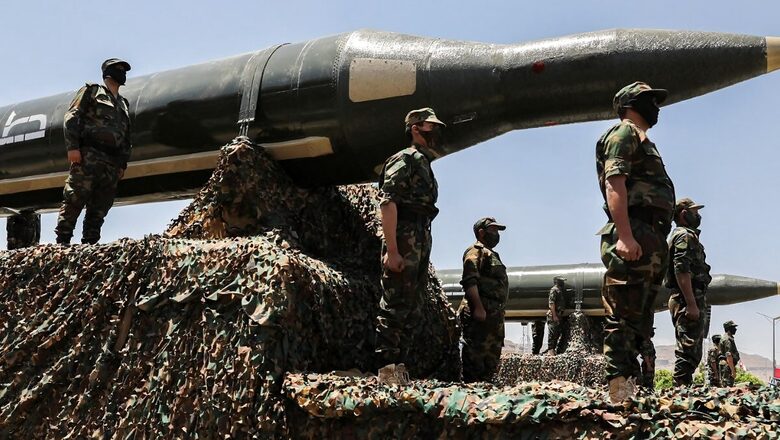
views
Yemen’s Houthi militias have attacked ships transiting the Red Sea since the onset of the 2023 Israel-Hamas war which was triggered on October 7 when terror group Hamas carried out an attack on southern Israel. Since Israel started its ground invasion and airstrikes in retaliation, the militias, who are heavily backed by Iran, have attacked international shipping, saying these actions show their support for Hamas and vowed to block ships travelling to Israel.
However, Houthis have indiscriminately attacked ships which led to air forces of the US and the UK launch airstrikes at their locations in Yemen this week, with both President Joe Biden and Prime Minister Rishi Sunak terming the actions as necessary to protect international shipping.
Why Have Houthis Attacked Red Sea Shipping Lanes?
The Houthis have carried out several attacks on ships transiting the Red Sea. Shipping major Maersk last week was forced to suspend shipping in the Red Sea and rerouted its containers through the Cape of Good Hope because of the attacks. On the morning of the New Year’s Eve, one of Maersk’s ships was attacked by Houthi armed boats who attempted to hijack the shipping container but US warships nearby sent helicopters and reinforcements driving them away and killing some militiamen who were aboard these small boats. 24 hours earlier, before sending boats, they attacked the Maersk Hangzhou, a Singapore-flagged, Denmark-owned and operated container vessel with anti-ship missiles.
In November, Houthi militiamen attacked and seized an Israeli cargo ship. They continue to attack vessels with drones and ballistic missiles.
A report by the BBC said that Houthi attacks on ships transiting the Red Sea increased 500% between November and December which forced major shipping companies, like Maersk, to suspend shipping on those lanes and take other routes which has increased insurance costs ten-fold the normal amount.
Mediterranean Shipping Company, Hapag-Lloyd and the oil company BP are among the ones who are diverting vessels away from the Red Sea. There are fears that fuel prices will rise due to these attacks on important supply chains.
The report highlighted that 15% of global seaborne trade passes through the Red Sea which links the Mediterranean to the Suez Canal and is the shortest shipping route between Europe and Asia.
Who Are The Houthis?
Houthis are Yemeni militia backed by Iran and Washington has accused Iran of being “deeply involved” in planning operations against commercial vessels in the Red Sea.
They are an armed-group who are a part of Yemen’s Zaidis – a sub-sect of the nation’s Shia Muslim minority. Their name is derived from the name of their founder Hussein al Houthi.
They formed in the 1990s to fight against what they perceived as corrupt practices of the then president Ali Abdullah Saleh and are formally known as Ansar Allah. Saleh did try to eliminate the Houthis with help from the Saudi Arabian military but Houthis repelled both.
Yemen has been plunged into a civil war since 2014 with Saudi Arabia leading a military coalition backing Yemen’s internationally recognised government against the Houthi rebels. Peace talks have been held but they are yet to yield results.
The group has modelled themselves after the Iran-backed Lebanese group Hezbollah and the latter has provided them with training and weapons since 2014. Houthis consider Saudi Arabia, the US and the wider West as their enemies and consider themselves as part of the Iranian ‘axis of resistance’ along with Hezbollah and Hamas.
The internationally recognized government, led by Yemen President Abdrabbuh Mansur Hadi, was supported by a coalition of Arab states led by Saudi Arabia but he ceded power to a Presidential Leadership Council. The Houthis control significant parts of the country, including the capital, Sanaa.




















Comments
0 comment